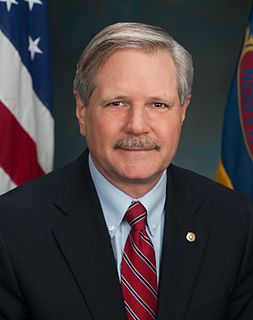A Quote by Jerry Brown
Were I to stop oil production, we`d have to import it from Iraq and from Caracas, Venezuela or from North Dakota where the environmental standards are much lower, on trains that have already proven themselves unsafe, or by more ships that are causing significant pollution in the world. It`s just really dumb.
Related Quotes
Venezuela has the biggest oil reserves in the world. And the biggest gas reserves in this hemisphere, the eighth in the world. Venezuela was a U.S. oil colony. All of our oil was going up to the north, and the gas was being used by the U.S. and not by us. Now we are diversifying. Our oil is helping the poor.
We have the resources and technology to produce more energy than we consume and break our long-standing dependence on foreign sources of oil. All we need is the will. In fact, there's a path to follow, one that North Dakota blazed over the last decade by building a comprehensive energy plan we called Empower North Dakota.
We're supposed to believe that oil had nothing to do with it, that if Iraq were exporting pickles or jelly and the center of world oil production were in the South Pacific that the United States would've liberated them anyway. It has nothing to do with the oil, what a crass idea. Anyone with their head screwed on knows that that can't be true.
Oil now, as a result of the Saudi production, is priced so low that there are not going to be new fracking investments made. A lot of companies that have gone into fracking are heavily debt-leveraged, and are beginning to default on their loans. The next wave of defaults that banks are talking about is probably going to be in the fracking industry. When the costs of production are so much more than they can end up getting for the oil, they just stop producing and stop paying their loans.
Bitumen is junk energy. A joule, or unit of energy, invested in extracting and processing bitumen returns only four to six joules in the form of crude oil. In contrast, conventional oil production in North America returns about 15 joules. Because almost all of the input energy in tar sands production comes from fossil fuels, the process generates significantly more carbon dioxide than conventional oil production.
There's a huge misconception that it's all about the oil, and the truth is there's actually not much oil left in Abyei. The misperception arose because when the peace agreement was signed in 2005, Abyei accounted for a quarter of Sudan's oil production. Since then, the Permanent Court of Arbitration in The Hague defined major oil fields to lie outside Abyei. They're in the north now, not even up for grabs, and they account for one percent of the oil in Sudan. The idea that it's "oil-rich Abyei" is out of date.































